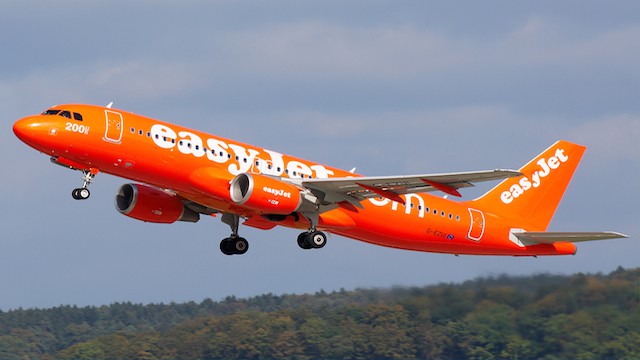The easyJet (LSE: EZJ) share price has been on a bumpy ride over the past year. The airline has risen 22% in value on a 12-month basis, a result of gains made earlier in the period as Covid-19 vaccinations were rolled out.
Escalating fears over the Delta variant, however, have been pulling easyJet’s share price lower since the spring. Covid-19 cases have leapt again and predictions for a full recovery in the travel industry has been scaled back in some quarters. Soaring inflation in the airline’s European markets hasn’t helped and recently pulled the airline’s share price to its lowest since last November.
At 605p, the easyJet share price is trending lower again. That’s even though the budget airline’s latest trading update this week suggested that the skies could be brightening. Does this represent an attractive buying opportunity for long-term investors such as myself?
Are the clouds lifting?
This week easyJet said that it expects pre-tax losses last year to range between £1.135bn and £1.175bn. This is thanks to losses dropping 50% year-on-year in the fourth quarter. City analysts had been predicting a £1.175bn loss for the financial year ending September 2021.
easyJet also said that it expects capacity to continue rising rapidly. Capacity came in at 17% of fiscal 2019’s level between April and June and improved to 58% in the following three months. And the business reckons capacity will improve to 70% in the final quarter of this calendar year. The company said that it expects bookings in the first half of fiscal 2022 to be “double those of the same time last year.”
Neither this news, nor a notable improvement in the airline’s balance sheet helped to lift easyJet’s share price, however. The FTSE 250 firm generated around £40m of operating cash in the fourth quarter of last year. This, combined with the proceeds of its recent £1.2bn rights issue, reduced net debt to £900m as of September from £2bn a year earlier.
Will easyJet’s share price keep crashing?
easyJet chief executive Johan Lundgren has proclaimed that “it is clear recovery is under way”. But I think it’s too early to say that the turbulence is over. As the company noted, visibility is limited as travellers delay booking until closer to their travel dates. It’s why the Luton airline is still not issuing guidance for the new financial year.
Concerns over passenger levels aren’t the only thing that could continue to weigh on the easyJet share price. The business is 55% hedged for its expected fuel requirements this financial year. But it clearly doesn’t give it total protection from a potentially extended period of high fuel prices.
Today, easyJet’s share price has a forward P/E ratio of 32 times. I don’t think this offers particularly good value. The enduring Covid-19 crisis continues to cast a pall over its recent recovery, and rising inflation damages consumer confidence and pushes up fuel costs. I’d rather buy other less-risky UK shares right now.








